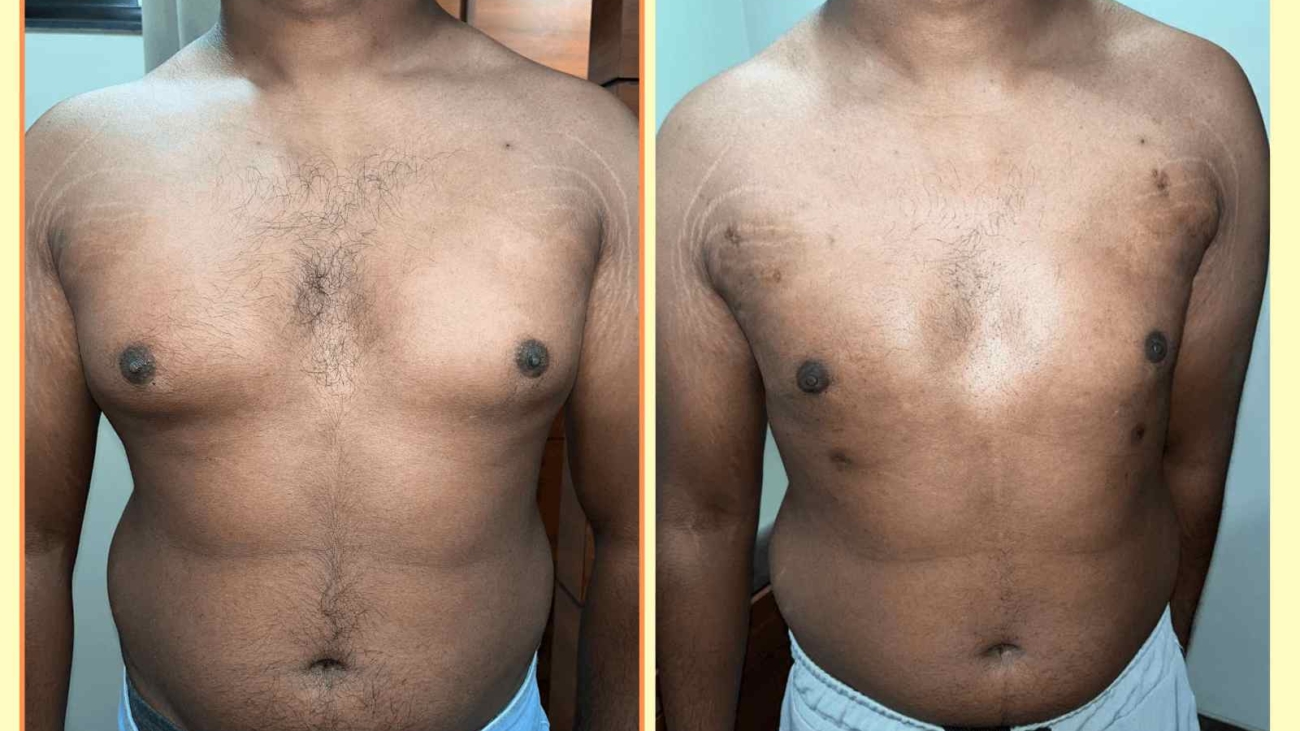Gynecomastia is a condition that affects men, causing them to develop breast tissue. This condition can be caused by a variety of factors, including hormonal imbalances, medication use, and genetics. In this article, we will answer all of your questions about gynecomastia, including what it is, how to know if you have it, and the latest and best treatments available.
What Is Gynecomastia?
Gynecomastia is a condition that causes men to develop breast tissue. This can occur due to an imbalance of hormones in the body, specifically an increase in estrogen levels. Gynecomastia can affect one or both breasts and can cause the breast tissue to be tender or sensitive.
Gynecomastia can occur at any age but is most common during puberty and in older men. It can also be caused by certain medications, such as those used to treat prostate cancer or high blood pressure. In some cases, gynecomastia may be caused by a medical condition, such as a tumor or liver disease.
How Do You Know If You Have Gynecomastia?
If you are experiencing breast tissue growth or tenderness, it is important to speak with Plastic Surgeon to determine if you have gynecomastia. Your doctor may perform a physical exam and order blood tests to check your hormone levels.
In some cases, your doctor may recommend a mammogram or ultrasound to rule out other causes of breast tissue growth. If your doctor determines that you have gynecomastia, they may recommend further testing to determine the underlying cause.
Exercise and Gynecomastia
While exercise cannot cure gynecomastia, it can help to reduce the appearance of breast tissue. Strength training exercises can help to build muscle in the chest area, which can help to make the breasts appear smaller.
Cardiovascular exercise can also help to reduce body fat, which can help to reduce the appearance of breast tissue. It is important to speak with Plastic Surgeon before starting any exercise program, especially if you have gynecomastia.
Best Treatment of Gynecomastia
The best treatment for gynecomastia depends on the underlying cause of the condition. In some cases, gynecomastia may resolve on its own without treatment. If the condition is caused by medication use, your doctor may recommend switching to a different medication. In cases where gynecomastia is caused by a medical condition, such as a tumor or liver disease, treatment of the underlying condition may help to resolve the breast tissue growth.
In cases where gynecomastia is caused by a hormonal imbalance, medication may be prescribed to help regulate hormone levels. Surgery may also be an option for men with severe gynecomastia, where breast tissue is removed through a surgical procedure.
Gynecomastia surgery.
Gynecomastia surgery, also known as male breast reduction surgery, is a cosmetic surgical procedure designed to remove excess breast tissue and fat from the chest area in men. The procedure is typically performed under general anesthesia and involves making incisions in the chest area to remove the excess tissue.
Gynecomastia surgery can be an effective way to restore a more masculine chest contour and improve self-esteem for men who are struggling with overdeveloped or enlarged breasts. However, it is important to choose a qualified and experienced surgeon and carefully consider the potential risks and complications associated with the procedure.
In conclusion, gynecomastia is a condition that affects many men, causing them to develop breast tissue. If you are experiencing breast tissue growth or tenderness, it is important to speak with Plastic Surgeon to determine if you have gynecomastia.Plastic Surgeon can help you determine the best course of treatment for your individual needs.
The goal of our Gynecomastia treatment is to boost your self-confidence and give you the ability to go out bare-chested when you want to. You deserve to feel comfortable in your own body, and we aim to bring you there.
If you have any more questions related to Gynecomastia, we are here to resolve them all.
For more info visit at: https://www.youtube.com/playlist?list=PLeLPRijLLzLqt7-B24naVliyLWhlOtr0N
Get In Touch : Dr. Sushrut Tated
Visit Us : Sayar Clinic, Ayodhya Complex,Infront of Canara bank, Bibwewadi, Pune, Maharashtra 411037
Mail Us : [email protected]
Contact Us: +91 9890434447

